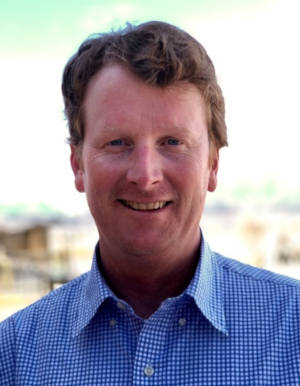
More than 30 U.S. states have decriminalized or legalized marijuana. Many of them declared cannabis products to be “essential,” allowing them to be dispensed during pandemic lockdowns, preserving needed tax revenue amid reportedly strong demand from medicinal and recreational users.
By all appearances, the cannabis industry is emerging from its black-market shadows into the bright, multibillion-dollar future that its advocates have long imagined. Cowen analysts in February “conservatively” predicted that consumer purchases of cannabidiol (CBD) health and wellness products could reach $16 billion by 2025.
However, the industry remains beset by a host of regulatory uncertainties, legal and liability exposures, and operational, environmental, health and safety complications. The National Cannabis Risk Management Association (NCRMA) was formed in 2018 to focus attention on these issues and create a counterweight to an assertion made on its website: that insurance companies and banks offer “risk management that is best for them,” rather than industry participants.
In recent months, the Pittsburgh-based NCRMA has taken its program up a notch with the appointment of Alex Hearding as chief risk management officer. With a water and soil science background and more than 10 years of business experience in the sector, Hearding is charged with introducing a “cannabis risk protection model” and a suite of educational offerings for the nation's “only dedicated risk management association” in the field.
The 2,000-member group postponed its 2020 conference, which was scheduled to take place March 22-24 in Las Vegas, where Hearding was to have been officially introduced.
“The current coronavirus crisis and response demonstrates the vitality of aggressive risk management,” Hearding said. “We will learn from this unprecedented event and use the lessons to best prepare our members for an uncertain future.”
Less than two months later, on May 7, the association announced NCRMAcademy, which broadcast its inaugural “cannabis hygiene and sanitation” webinar, led by Hearding, on May 14.
“As multiple states move to reopen businesses, we wanted to provide a resource to help cannabis owners ensure the safety of their employees and customers,” Hearding said. “This debut course will cover a number of health protocols, including appropriate cleaning and disinfection practices, hygiene and hazard controls.”
Education and Certification
In an interview, Hearding said that he is not speaking into a knowledge void or vacuum, but there are dots that need connecting.
“People in the industry know what the words risk and management mean,” he said, “but they don't know the breadth of risk management. We need traditional risk management methods. We need policies.”
One of his near-term aims is to develop a certification program for cannabis industry risk managers.
Insurance and risk transfer are part of the still developing solutions picture. Hearding said that general liability, product liability, crop loss and workers compensation insurance is available, but policies are “subprime” and have high deductibles and limitations on what is covered.
Banking Obstacles
Then there is the unresolved sore point of banking services, barred because of cannabis' controlled-substance status. The SAFE Banking Act - legislation to let insured depository institutions serve legal cannabis enterprises, presumably helping to lower their risk of carrying large amounts of cash - passed only the U.S. House last year. It was inserted into the HEROES Act that passed the House on May 15, but take-up by the Senate is uncertain.

On the other hand, hemp has been removed from its Controlled Substances Act designation, leading to a statement from U.S. financial regulators last December that under anti-money-laundering rules, “banks are not required to file a Suspicious Activity Report (SAR) on customers solely because they are engaged in the growth or cultivation of hemp in accordance with applicable laws and regulations.”
Hearding said that he and a partner ran up against the banking ban after obtaining a cultivation license in Leadville, Colorado, in 2014. Their landlord's bank was told by the Federal Deposit Insurance Corp. that the “marijuana people” could not be allowed to operate if any kind of bank note was attached to the entity.
Complying with varying state regulations is not currently a major problem for U.S. ventures, said the NCRMA official, because the few multistate operators tend to be Canadian. Banking services are accessible to them, and companies in Canada are able to go public.
Worker Safety
Also on Hearding's agenda is ergonomic best practices. At cultivation companies, for example, trimmers “take a bud in one hand and scissors in another for a long period of time. This creates significant repetitive motion injuries. There are going to be significant worker compensation claims,” he said.
With a B.S. degree in watershed science from Colorado State University, Hearding brings experience that includes business start-ups and licensing, construction, operational development, facility design, policy and procedure development, occupational safety and health services, training and risk management. Before joining the association, he spent three years in risk management, safety and compliance at Two Dog Solutions, a cannabis industry consulting firm.
“Our appointed brokers and members have pointed out the need to organize and provide a focal point for access and advice,” said NCRMA chairman Rocco Petrilli. “Alex provides this entrÉe point and promises much more in the area of disruptively innovative risk management products and services.”
In a 30-plus-year career, Petrilli has held C-level and board positions in multiple industries. He earned a BSc. in chemical engineering from Pennsylvania State University and is a veteran of the automotive components manufacturing industry.